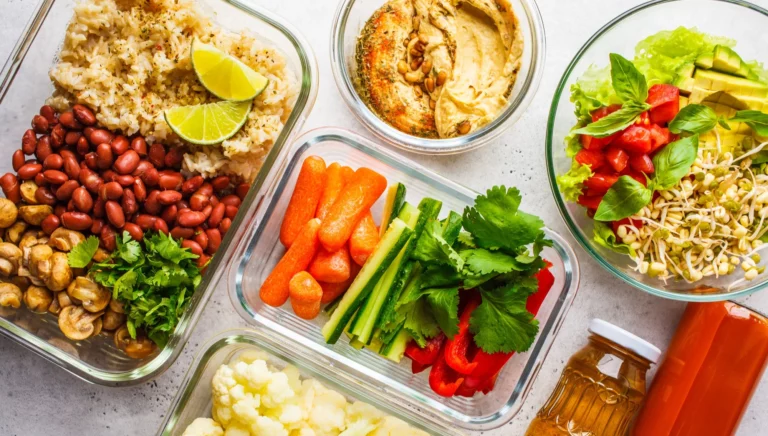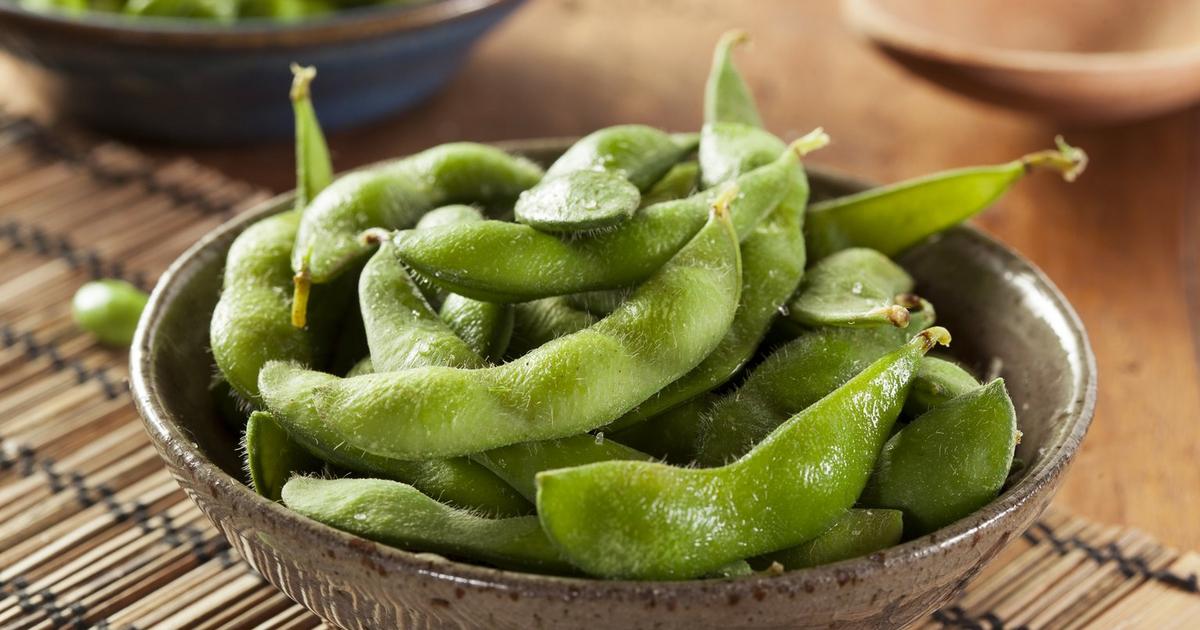Protein is a building block for the body’s tissues and is thus a necessary nutrient. It may seem challenging to get enough protein as a vegan, but there are now more vegan options that are rich in protein than ever. You may increase your plant protein consumption in infinite ways, including nuts, seeds, and legumes. You can quickly satisfy your protein demands and flourish on a plant-based diet by adding some of the best high-protein vegan foods, which we’ll discuss in this article. Unleash the power of plant-based, high protein vegan foods.
The Power of Protein: Why Your Body Needs It
Many body activities rely on protein, making it an important food. Some reasons why protein is essential are as follows:
Builds and repairs tissues: Protein is essential for developing and maintaining all bodily tissues, including skeletal muscle, connective tissue, skin, and hair.
Produces enzymes and hormones: Protein is required to Produce enzymes, hormones, and other macromolecules that control different physiological processes.
Maintains fluid balance: Protein aids in fluid balance maintenance by drawing and retaining water in tissues, which keeps the body’s fluid levels stable.
Supports immune function: Protein is an essential building block for antibodies, which aid in the defence against infectious illnesses and infections. Thus, it promotes immunological function.
Gives you energy: When fat and carbs aren’t an option, protein may step in.
Helps with weight: Because it requires more energy to break down protein than carbs or fat, it may aid in weight reduction and maintenance efforts.
It helps maintain bone health: Protein aids in the absorption of calcium and the formation of bones, which in turn lowers the risk of osteoporosis.
Lessens inflammation: Omega-3 fatty acids and other proteins have anti-inflammatory characteristics.
Supports brain function: Protein is an essential building block for neurotransmitters like serotonin and dopamine, which control our emotions and mental processes.
Maintains overall health: Protein, including kwashiorkor, marasmus, and other protein-deficiency disorders, is essential for general health and illness prevention. It also keeps you from becoming sick.
How Much Protein Should We Consume?
It’s essential to remember that the daily protein intake recommendation can vary depending on factors like age, sex, weight, and activity level. Here are some general guidelines to consider:
For Sedentary Adults: It’s recommended to consume 0.8 grams of protein per kilogram of body weight, which equals about 56 grams per day for a person weighing 150 pounds.
For Active Adults: Aim for 1.2-1.6 grams of protein per kilogram of body weight, which equates to about 80-120 grams of protein per day for a person weighing 150 pounds.
For Athletes: For those trying to build muscle, it’s suggested to consume 1.6-2.2 grams of protein per kilogram of body weight, or about 120-170 grams of protein per day for a person weighing 150 pounds.
For Pregnant or Breastfeeding Women: Aim for 1.1-1.5 grams of protein per kilogram of body weight, which translates to about 70-100 grams of protein per day for a person weighing 150 pounds.
For Children and Teenagers: Recommended intake is 0.8-1.2 grams of protein per kilogram of body weight, or about 40-60 grams of protein per day for a 50-pound child.
What is Vegan Protein?
The term “vegan protein” describes a kind of protein that does not originate from animals. Some examples of this food are veggies, beans, nuts, seeds, whole grains, and soy products. You may achieve your protein demands by combining the amino acids these sources provide. Vegan protein powders, chickpeas, seitan, tempeh, lentils, black beans, and tofu are among the high-protein vegan options.
Top 15 High-protein vegan foods
Seitan (21g protein per 3 oz serving)
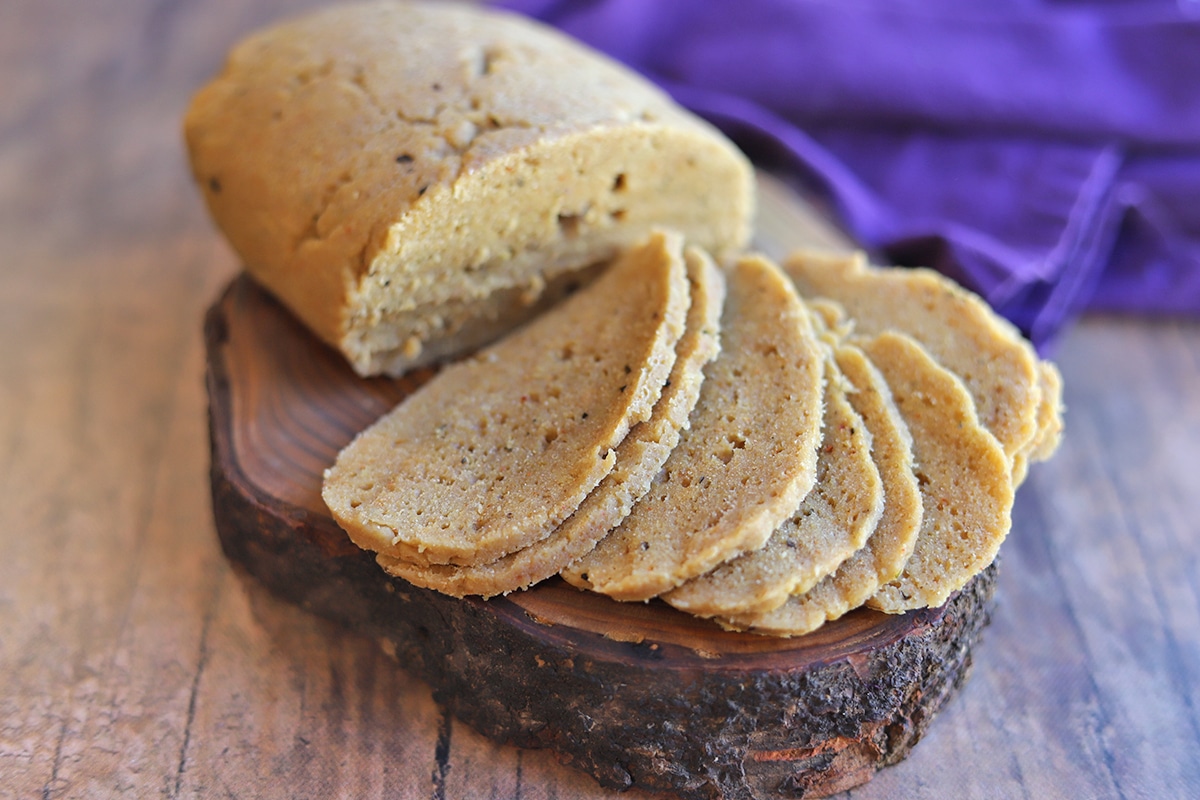
Made from wheat gluten, seitan has a meat-like texture and a neutral taste; it is a high-protein vegan option. Vegans seeking a meat alternative often choose it since each 3-ounce meal has around 21-25 grams of protein. You may marinade, bake, broil, or stir-fry seitan, which absorbs flavours wonderfully. It is a healthy complement to a plant-based diet since it is rich in protein and has little calories, fat, and carbs. Those wheat intolerant or with celiac disease should stay away from seitan.
Tempeh (15g protein per 3 oz serving)

Tempeh has a nutty taste and a firm texture; it is a vegan protein source rich in nutrients and derived from fermented soybeans. Many vegans looking for a meat alternative love this since it has around 15 grams of protein per 3 oz serving. In addition to being a good source of probiotics, which promote digestive health, tempeh is rich in fibre, vitamins, and minerals. Add this multipurpose ingredient to salads, sandwiches, and stir-fries after marinating, baking, grilling, or stir-frying them. Anyone seeking a vegan protein source that won’t irritate their digestive system might choose tempeh because it is a fermented soy product and is more straightforward to digest than unfermented soy products.
Lentils (18g protein per 1 cup cooked)
:max_bytes(150000):strip_icc()/how-to-cook-lentils-opener-2000-9427064c3429470cb7c9b14646ea8a0e.jpg)
One cup of cooked lentils provides 18 grams of protein, making them an excellent source of plant-based protein. Protein, fibre, and vital minerals abound in these tiny legumes, a mainstay of vegan diets. Lentils are a great addition to many cuisines due to their mild, earthy taste and soft texture. They go well with heavy stews, curries, salads, and soups. Additional benefits include improved digestion, heart health, and a wealth of antioxidants. If you’re looking for a plant-based protein source and are following a vegan diet, lentils are a great option since they’re low-calorie and high-protein.
Chickpeas (15g protein per 1 cup cooked)
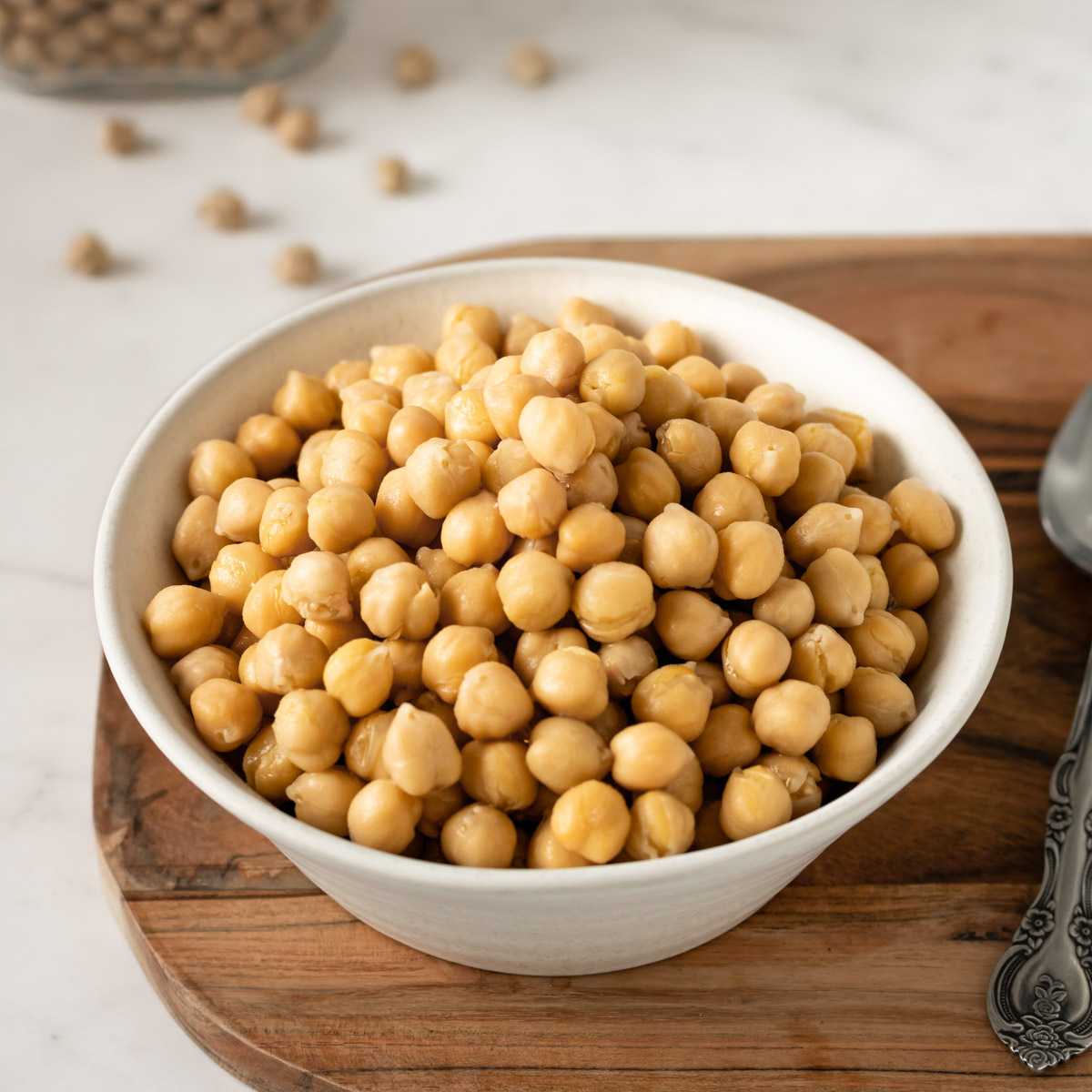
Chickpeas, when cooked, provide 15 grams of protein—making them an excellent vegan protein source. These nutty, creamy beans are a wonderful complement to any plant-based diet due to their high fibre, vitamin, and mineral content. Hummus, salads, stews, and curries are just a few meals that benefit from chickpeas’ adaptability. Additional benefits include improved digestion, heart health, and a wealth of antioxidants. Chickpeas are a fantastic protein-rich item for vegans; they provide a touch of mildness to dishes and are easy to include because of their soft texture and mild taste. Chickpeas are a great vegan protein source; they taste great roasted, mashed, or cooked in many ways.
Black beans (15g protein per 1 cup cooked)
One cup of cooked black beans provides 15 grams of protein, making them an excellent vegan staple. A wonderful complement to a plant-based diet, these tiny black beans are rich in nutrients such as fibre, vitamins, and minerals. From Latin-inspired meals like rice and beans to soups, stews, and salads, black beans are an adaptable ingredient because of their soft texture, somewhat sweet taste, and earthy undertones. In addition to helping with digestion and heart health, they are packed with antioxidants. Black beans are an excellent option for vegans looking for a nutrient-dense protein source that is simple to add to their diets since they are low-calorie and high-protein. High protein vegan foods for a healthy lifestyle.
Tofu (20g protein per 3 oz serving)
:max_bytes(150000):strip_icc()/Simply-Recipes-Guide-to-Tofu-LEAD-03-b061d09a0d434bb38ddac0c7017829ab.jpg)
20 grams of protein are packed into only three ounces of tofu, making it a flexible and protein-rich vegan staple. As a vegan, you can’t go wrong with tofu, which is made from soybeans and is rich in plant-based protein, iron, and calcium. Because of its mild taste and malleable texture, tofu is an excellent addition to many different types of food, including soups, scrambles, curries, and stir-fries. This versatile protein source may be prepared in various ways, including marinating, baking, grilling, or pan-frying. When looking for a protein-rich diet that promotes overall health, vegans can choose tofu since it is low in saturated fat and calories, which is good for their hearts. No matter how firm, soft, or silky your tofu is, it’s always a tasty and healthy vegan protein option.
Kidney beans (15g protein per 1 cup cooked)
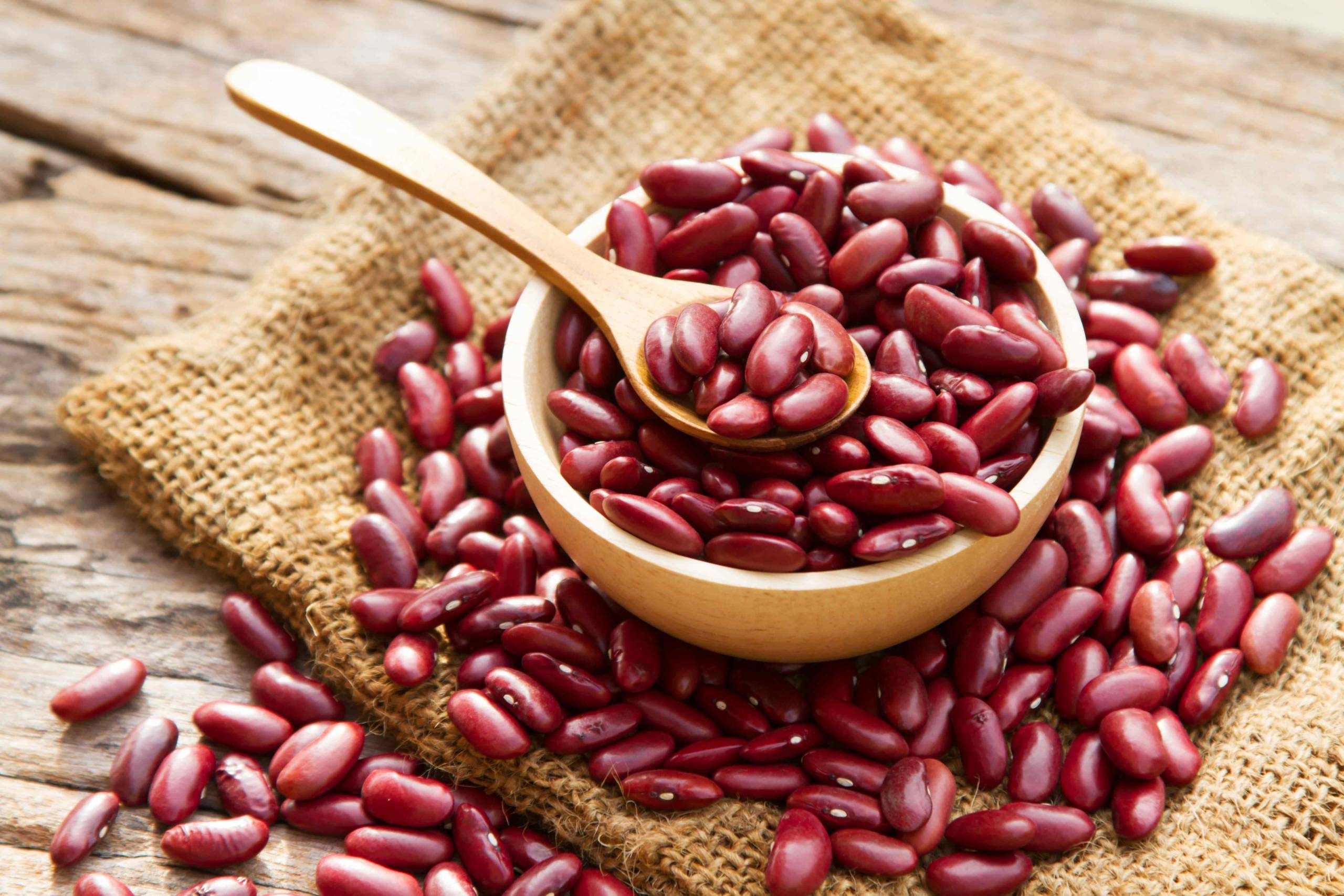
One cup of cooked kidney beans has 15 grams of protein, making them an excellent vegan protein source. These little red beans are a wonderful complement to any plant-based diet due to their high fibre, vitamin, and mineral content. Thanks to their moderate sweetness and delicate texture, kidney beans are delicious in many cuisines, from stews and chilli to salads and rice bowls. Additional benefits include improved digestion, heart health, and a wealth of antioxidants. Kidney beans are an excellent option for vegans looking for a nutrient-dense protein source that is simple to add to their diets since they are low-calorie and high-protein. Kidney beans, whether prepared from home or in a can, are a healthy and tasty option for vegans looking for protein.
Quinoa (8g protein per 1 cup cooked)
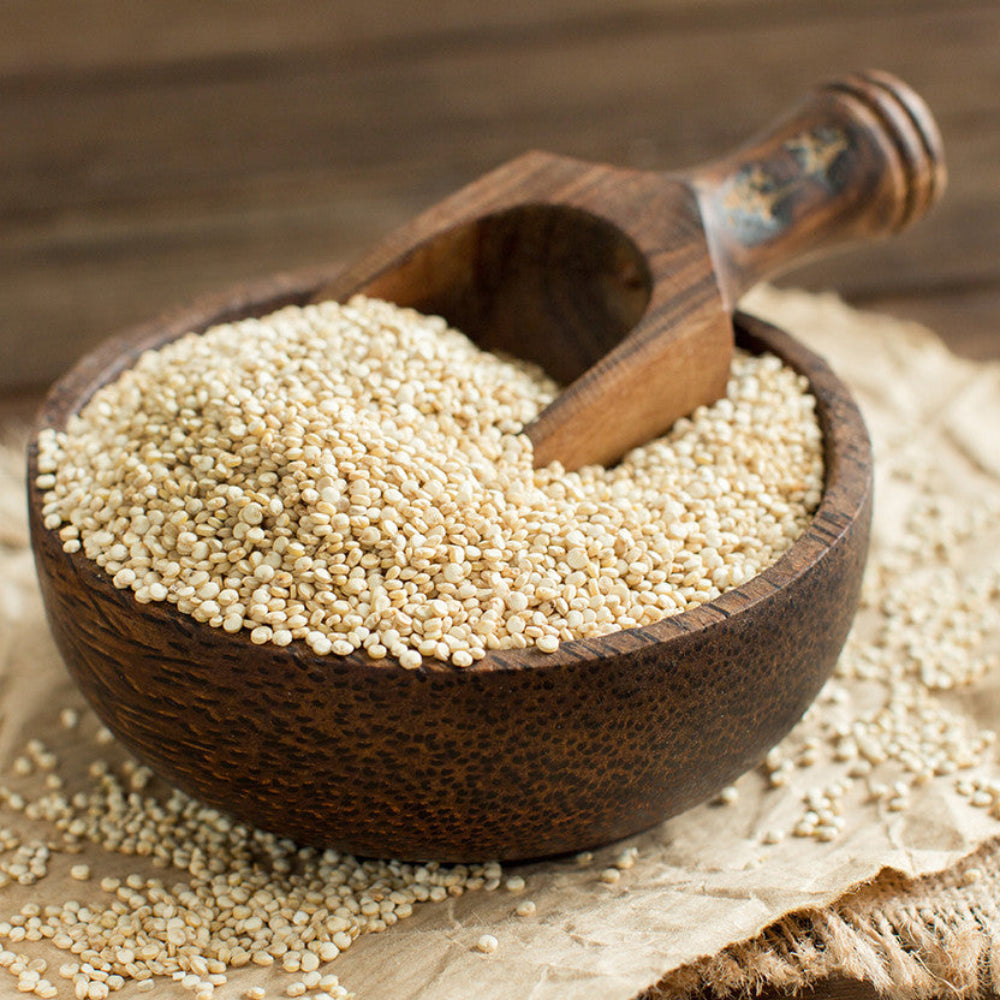
One cup of cooked Quinoa provides 8 grams of protein, making it a nutrient-dense vegan staple and a complete protein. This ancient grain is perfect for vegans looking for protein since it contains all nine necessary amino acids, which is unusual for plant-based sources. The heart and digestive systems may benefit from Quinoa’s high fibre, vitamin, and mineral content. Tossed into anything from salads and bowls to stir-fries and stews, Quinoa’s light, nutty taste and fluffy texture make it an adaptable ingredient. For vegans looking for a protein-rich diet that promotes overall health, Quinoa is an excellent option since it is gluten-free and has few calories. In all its colours, Quinoa is a great vegan protein source that is healthy and tasty.
Spirulina (16g protein per 1 tablespoon)
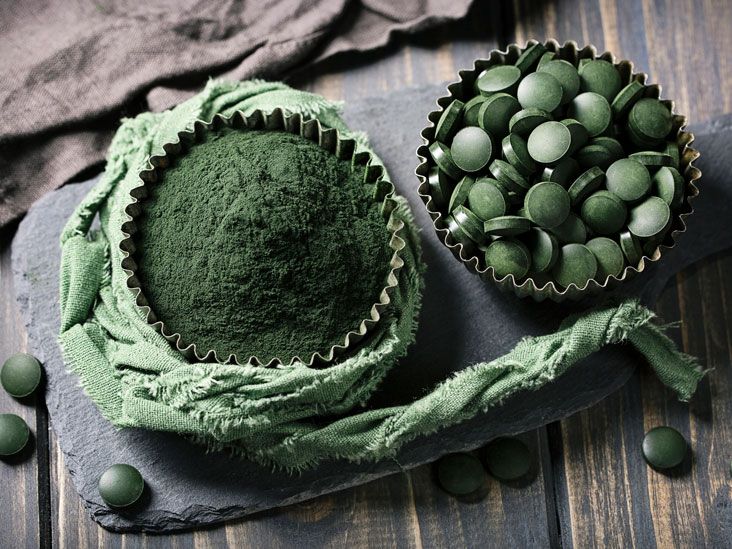
A tablespoon of nutrient-dense spirulina has 16 grams of protein. It is a vegan protein powerhouse. Many vegans turn to these tiny algae as a dietary supplement because of the abundance of plant-based protein, vitamins, and minerals they contain. Because it has all nine necessary amino acids, spirulina is considered a complete protein. It is an excellent complement to vegan diets due to its high protein, iron, and calcium content. Spirulina is a great way to increase the protein and nutritional value of smoothies, salads, and energy balls. It has a mild, earthy taste and is easy to include. For vegans looking for a protein-rich diet that promotes their general health and the environment, spirulina is a fantastic option since it is both sustainable and environmentally beneficial.
Amaranth (9g protein per 1 cup cooked)

One cup of cooked amaranth has 9 grams of protein, making it an excellent vegan protein source. An ideal choice for vegetarians and vegans, this ancient grain contains all nine essential amino acids, making it a complete protein. Iron, magnesium, and potassium are minerals and vitamins abundant in amaranth. From salads to stir-fries to puddings and porridges, amaranth’s mild, somewhat sweet taste and tender texture make it a versatile ingredient. Amaranth is an excellent option for vegans seeking a protein-rich diet that promotes overall health since it is gluten-free and has minimal calories. Incorporating amaranth into a plant-based diet is tasty and beneficial for heart health and digestion.
Split peas (16g protein per 1 cup cooked)
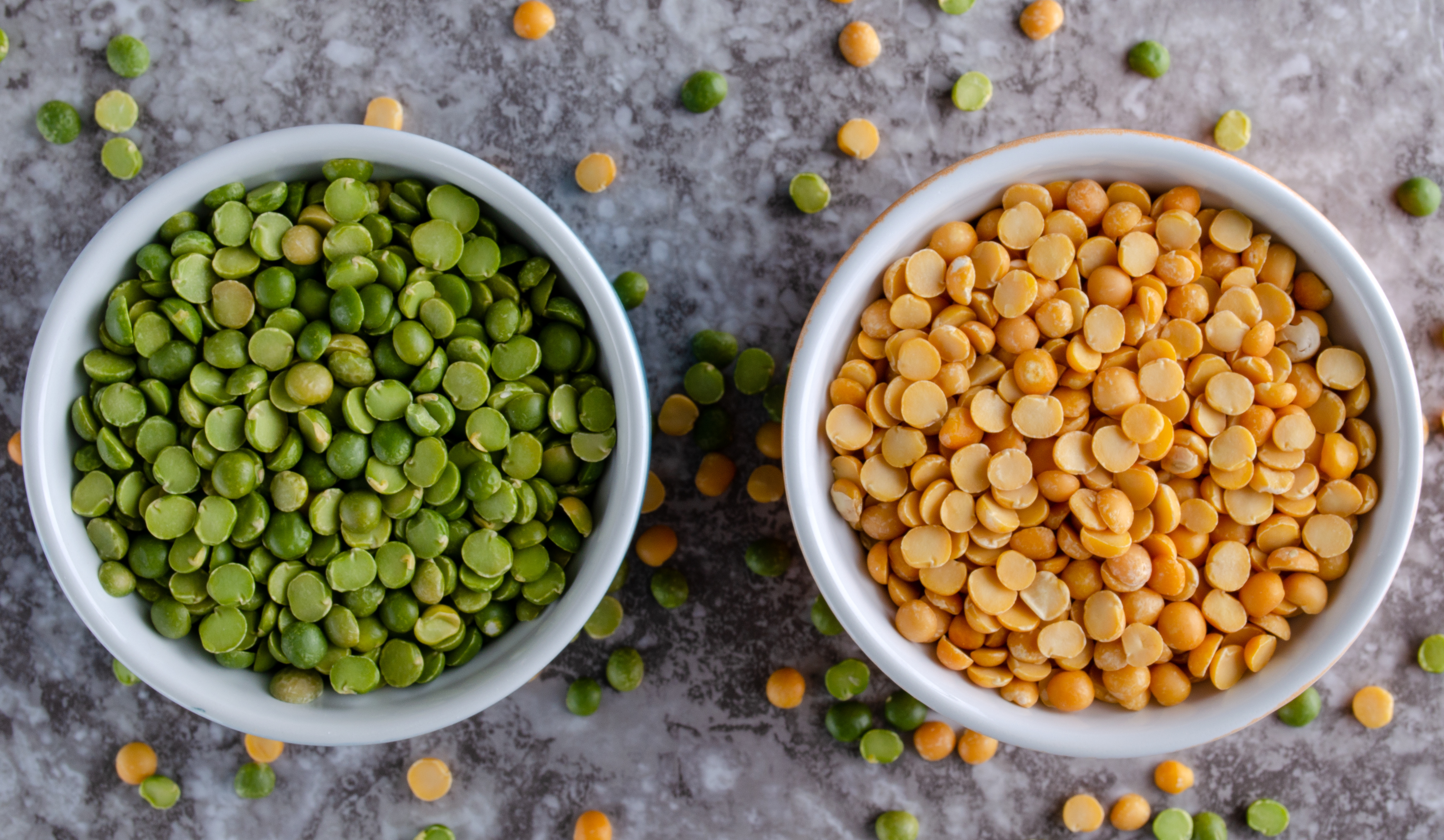
One cup of cooked split peas provides 16 grams of protein, making them a nutrient-rich and protein-rich vegan staple. You can’t go wrong with these little green beans as a source of plant-based protein, fibre, and vital nutrients like folate, potassium, and iron. Soups, stews, curries, and salads are just a few of the many meals that benefit from split peas’s gentle sweetness and tender texture. They are a vegan-friendly supplement to a heart-healthy diet since they are low in calories and antioxidants. Split peas are an excellent option for vegans looking for a complete and healthy protein source since they are cheap and easy to get. Vegans may enjoy the tasty and healthful split peas in classic meals like split pea soup or contemporary recipes that call for more protein.
Hemp seeds (10g protein per 1 tablespoon)

A tablespoon of hemp seeds provides 10 grams of protein, making them a nutrient-dense vegan superfood and a complete protein. A great plant-based protein source, these tiny, nutty seeds have all nine necessary amino acids. Aside from being an excellent source of fibre, healthy fats, and minerals like zinc, iron, and magnesium, hemp seeds are a nutritional powerhouse. Smoothies, salads, energy balls, and yoghurt parfaits may all benefit from adding hemp seeds, which have a mild nutty taste and a crunchy texture. They also give a boost of protein and vitamins. Hemp seeds are an excellent option for vegans looking for a protein-rich diet that is also good for the environment and the planet since they are sustainable and environmentally friendly. Incorporating hemp seeds into a plant-based diet is tasty and beneficial for your heart and digestive system.
Cannellini beans (17g protein per 1 cup cooked)
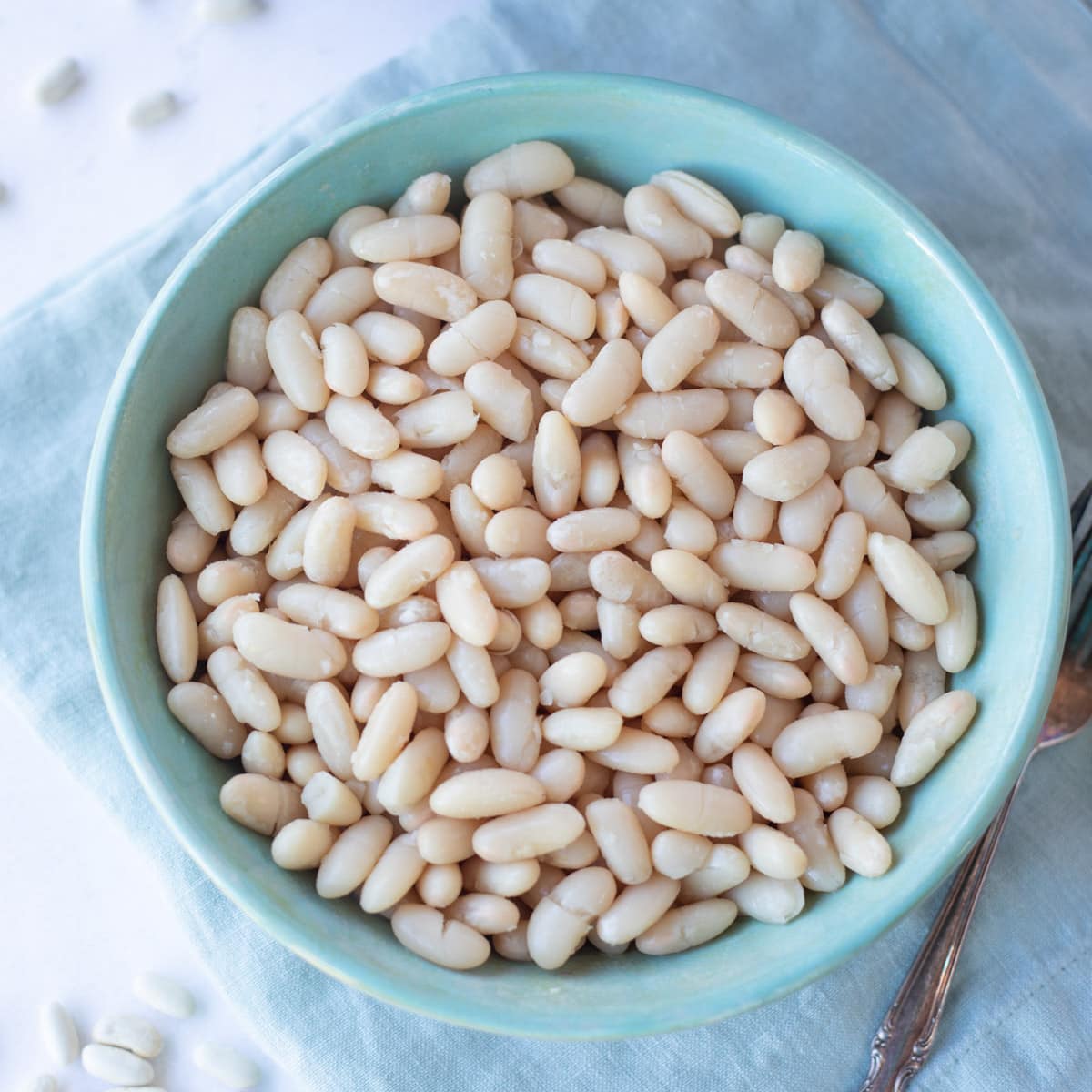
One cup of cooked cannellini beans has 17 grams of protein, making them a nutrient-rich, high-protein vegan staple. You can’t go wrong with these big white beans as a plant-based protein, fibre, vitamin and mineral powerhouse. Whether you’re making a dip, stew, soup, or an Italian-inspired meal like minestrone or cannellini bean salad, cannellini beans are a versatile ingredient that adds a creamy texture and mild, nutty taste. They are a vegan-friendly supplement to a heart-healthy diet since they are low in calories and antioxidants. If you’re a vegan looking for a satisfying and healthy protein source that won’t break the bank, cannellini beans are a great option. They’ll help you feel good all over.
Lima beans (15g protein per 1 cup cooked)
:max_bytes(150000):strip_icc()/Lima-Beans-GettyImages-92385531-59c14d28af5d3a0010abf682.jpg)
One cup of cooked lima beans has 15 grams of protein, making them an excellent vegan protein source. You can get your daily dose of plant-based protein, fibre, and minerals like iron, potassium, and magnesium from these little beans, which may be green or white. Soups, stews, salads, and casseroles are just a few of the many meals that benefit from lima beans’ mild buttery taste and tender texture. On top of being a vegan-friendly addition to your diet, they are heart-healthy thanks to their low-calorie and antioxidant content. If you’re a vegan looking for a satisfying and healthy protein source that won’t break the bank, lima beans are a great option. They’ll help you feel good all over. Vegan lima beans are a tasty and healthy addition to any cuisine, whether you’re making a classic dish or something more contemporary.
Edamame (17g protein per 1 cup cooked)
There are 17 grams of protein in just 1 cup of cooked edamame, making it a nutrient-rich, high-protein vegan staple. You can’t go wrong with these fresh, verdant soybeans as a plant-based protein, fibre, vitamin and mineral powerhouse. Edamame is an excellent addition to many different foods due to its crisp texture, sweet and nutty taste, and wide range of Asian-inspired recipes (sushi, stir-fries, salads, soups, etc.). They are a vegan-friendly supplement to a heart-healthy diet since they are low in calories and antioxidants. Edamame is an excellent option for vegans looking for a protein-rich, easy-to-prepare addition to their meals to help them feel whole and healthy. Edamame is a great vegan protein option, and it tastes excellent cooked any way you like.
Conclusion
Eating these vegan foods rich in protein may satisfy your protein demands and gain confidence in the many advantages of a plant-based diet. Remember that protein isn’t everything and that a vegan diet should consist of a wide range of complete, nutrient-dense foods. Try different dishes, ingredients, and protein sources to keep your diet exciting and ensure you receive all the nutrients your body needs. Eating these high-protein vegan meals may achieve optimum health and well-being and a compassionate and sustainable lifestyle. Power your plant-based diet with high protein vegan foods
Boost Your Plant-Based Diet with These High Protein Vegan Foods!

